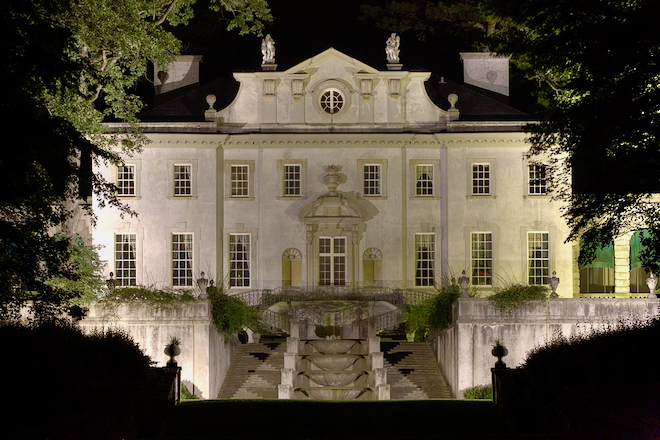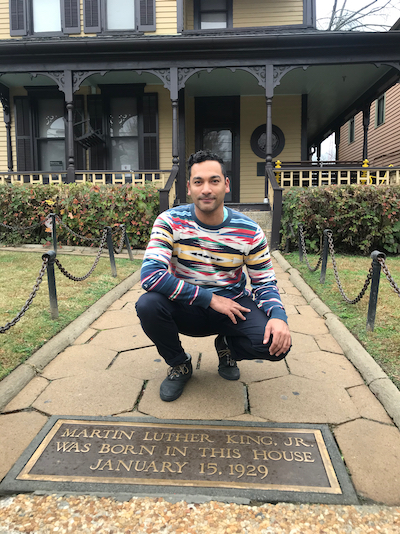IARJ News and Views: From Yazeed Kamaldien of South Africa, thoughts on European Union exchange visiting the U.S.

Editor’s Note: Starting this year, we are inviting long-time IARJ members from around the world to write occasional columns about their perspectives on religion. The first column in this series was written by former IARJ Executive Director Endy Bayuni, who wrote about the UN’s new International Day to Combat Islamophobia. In this second column, our Sub-Saharan Africa Representative Yazeed Kamaldien writes about his participation in the Global Exchange on Religion in Society (Geris) project funded by the European Union. It brings together journalists and civil society organizations to build relationships and tell stories of inclusivity and diversity.
Interfaith dialogue has been an important focus of my reporting on religion over the years, particularly in my home city Cape Town in South Africa.

To this end, I’ve written about interfaith iftars during Ramadan as well as religious leaders standing up against crime or struggles against gentrification that threatens local culture and religious spaces in Cape Town.
So in early 2021, when I saw the call for journalists to participate in the Global Exchange on Religion in Society (Geris) project, I was drawn to its goal of strengthening the dissemination of positive experiences of coexistence among actors of different faiths, and none.
I also liked that Geris wants to contribute to social inclusion and societal resilience
and facilitate a global conversation on diversity, coexistence and social inclusion.
After applying, I was among 30 journalists accepted from Belgium, Bosnia and Herzegovina, Indonesia, Morocco, South Africa and the United States. Bringing us together was aimed to improve communication
between participants and work towards increased visibility for positive experiences
in the media.
Participants are not paid to be part of the Geris exchange and it is meant to be an enhancing journey with others who want to focus on the role of religion in society.
As participants, we were assigned to working groups. Mine was Being A Minority
and participants in our group traveled to Atlanta, Georgia, and also traveled to nearby Montgomery, Alabama. We participated in meetings with local religious groups sharing experiences living as minorities in the United States.
This was an appropriate country for our working group, especially after the Black Lives Matter movement went global in its calls for an end to racial discrimination and police violence. By the time we traveled to Atlanta in December 2021, I already had been living in the United States for a few months where I’m pursuing a master’s degree in international peace-building at the Hartford International University for Religion and Peace.
My time in the New England city of Hartford, Connecticut, which has a population of 123,000, was quite a contrast with Atlanta, which has a population of nearly 500,000. I already was aware of racial inequalities in the United States and the pervasive emphasis placed on race in American culture and politics—but these issues were more visible in Atlanta, which has a greater African American population than most cities I have visited in the United States.
Talking to religious leaders and encounters with social justice movements in Atlanta hammered home the ubiquitous racial challenges in the United States. BLM it seems was the anger finally being released after years of indigenous people being erased from their land, the enslavement of millions of Africans shipped to the United States and continuing systemic racism.
Religion too is affected by race. Our group heard of how common it is in the U.S. for many churches to be viewed as white churches
with white congregants and others as black churches
with black congregants.
During a packed week of meetings, we also visited relevant spaces including the Atlanta History Center, The Legacy Museum, The Equal Justice Initiative and the Georgia Justice Project. I also visited the Birth Home of Martin Luther King Jr, whose teachings and principles of non-violence I’m studying while here in the United States.
By the end of our week, it became evident that we do not have enough time as journalists to always connect with faith-based organizations who have good stories to tell. For most of us, the never-ending deadline rush keeps us on a hard news treadmill.
We do not always have time for deep listening, groundwork in unfamiliar spaces or time out from other stories to focus more intentionally on religion reporting.
As journalists on the Geris project, we are now working on our various stories while unpacking and understanding our exchange theme—in my case, Being A Minority—through the work of participants in civil society projects.
Geris feels thus more like an intervention—a necessary one—to get journalists into spaces with organizations that keep faith focused.
